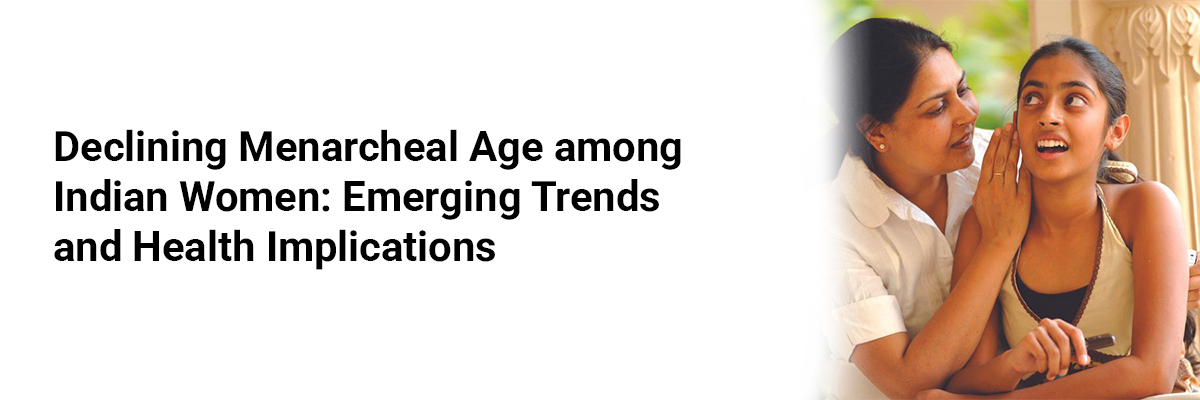
 IJCP Editorial Team
IJCP Editorial Team
Declining Menarcheal Age among Indian Women: Emerging Trends and Health Implications
The age at menarche is a key biological milestone in a woman’s life and is widely regarded as an important indicator of population health and quality of life. Tracking this indicator is vital for understanding women's health trajectories and informing public health policies. Despite its significance, limited data exist on how menarcheal age has changed over time in India.
A recent study aimed to fill this gap by analyzing trends, patterns, and regional variations in the age at menarche among Indian women. Using a birth cohort design, the study drew on data from the 1st (1992–93), 4th (2015–16), and 5th (2019–21) rounds of the National Family Health Survey (NFHS). Descriptive statistics and bivariate analyses were conducted to examine the distribution and average age at menarche across birth cohorts and socio-demographic groups. A multiple linear regression model was further applied to assess temporal trends and associations with various covariates.
The results showed that the majority of women (66.2%) attained menarche between the ages of 13 and 14 years. Around 17.2% experienced early menarche, while 16.7% experienced late menarche. The overall mean age at menarche was 13.49 years. A clear secular decline in menarcheal age was observed across successive birth cohorts, indicating a downward trend over time.
The study also revealed significant socio-economic disparities in menarcheal timing. Women born between 1942 and 2006 showed a consistent decline in the age at menarche, with the youngest cohort reporting the lowest average age. These trends reflect broader social and environmental changes and may influence women's long-term health, given the association between early menarche and increased lifetime exposure to endogenous hormones—potentially raising the risk for various adverse health outcomes.
These findings underscore the need for continued monitoring of reproductive health indicators and a deeper understanding of the socio-environmental determinants influencing early puberty among Indian women.
Source: Meher T, Sahoo H. Scientific Reports. 2024 Mar 5;14(1):5398.

IJCP Editorial Team
Comprising seasoned professionals and experts from the medical field, the IJCP editorial team is dedicated to delivering timely and accurate content and thriving to provide attention-grabbing information for the readers. What sets them apart are their diverse expertise, spanning academia, research, and clinical practice, and their dedication to upholding the highest standards of quality and integrity. With a wealth of experience and a commitment to excellence, the IJCP editorial team strives to provide valuable perspectives, the latest trends, and in-depth analyses across various medical domains, all in a way that keeps you interested and engaged.





















Please login to comment on this article